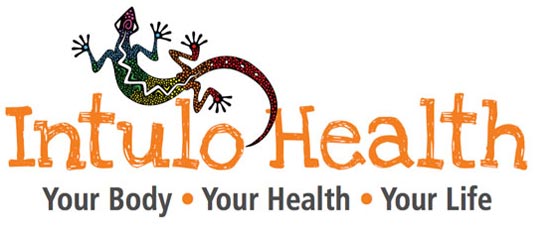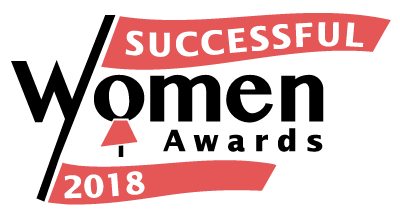
Amanda Burger is the owner of Intulo Health Sports and Remedial Massage, one of the South’s leading deep tissue massage therapists. Having served as official massage therapist for AFC Bournemouth, Amanda has experience dealing with patients as varied as sports people to the general public. This month we chat to Amanda about her history and what her job entails and how her business can be of benefit to you.
When did you start your business?
I graduated from The London School of Sports Massage in August 2011 and went self employed in the September of 2011. I had been working in the property industry for 10 years so it was a big change for me.
Why did you choose to work in this field?
I studied for a fitness diploma in 2005 as a foundation certification to become a spin instructor and whilst studying the theory side of the diploma I developed a fascination for Anatomy and Physiology and realised how much I loved it, and I thought, hey I’m good at this I need to do something with it.
What was the studying and training like and what did it cover?
The course with LSSM was very hands on and practical because there’s only one way to learn how to massage and that’s to get stuck in and do it. We had an intensive 12 months which included theory work, case studies, hands on practical assessments and as part of the course we had to do 100 treatments with signed off paper work to prove that we’d completed them. I loved it because I pretty much started building my client base whilst I was studying because it takes time to build a business and it’s important to build a relationship with people in this business. The most difficult part was trying to find different people who’d be willing to have a free massage.
What does Intulo mean and how did you come up with the brand name and logo?
Intulo is “zulu” which is a native language in South Africa and it means Lizard. The logo is actually a ghekko however I couldn’t find an African name for Ghekko so I used Intulo instead. The colours running through the ghekko are the colours of the different energy chakra’s of the body and the Ghekko is significant to me personally because it’s my nephews nickname and he’s a little ginger so hence the orange.
Tell us about your work you did at AFC Bournemouth?
When I qualified I contacted Steve Hard the Head Physio at AFC and volunteered to improve my skills and I wanted to gain experience working with professional athletes. I desperately wanted to work with Steve and observe how he worked with the footballers and it was such a privilege to observe and learn in that environment and it was hard work! I absolutely loved working with the boys, they taught me alot about football and they certainly changed my perception of footballers. Our Cherries are so down to earth and I’d like to think we built up a mutual respect towards each other.
Is it harder to massage men than women with the muscle mass and density?

It depends entirely on the individuals sport to be honest. There are plenty of women that I massage that are hard core gym enthusiasts or power lifters so they can be pretty hard to work on too. However, most of the time it can be more difficult to massage a man. The footballers in particular were very hard work, their bodies are like steel and of late I’ve started working with a local rugby team and their legs and upper bodies are no different.
What are the benefits of Deep Tissue and Sports Massage?
Gosh there are so many. The misconception is that sports massage is only for sports people, however, sports massage is actually deep tissue massage and it’s a combination of the different massage techniques that we use that the body responds to. For example I’ll use trigger point therapy on muscles where I can feel there is a “knot” or a trigger point as we call it, or I’ll use soft tissue release or muscle energy techniques if there is an imbalance in the structure of the muscles, for instance where one muscle is shorter than the other. I have worked with people who suffer with headaches, fibromyalgia, stroke victims to professional footballers. Massage is an ancient Chinese practice it has been practised for more than 5000 years and it is used for helping the body to regenerate, revive it’s power and to heal itself. It also helps to release fear and tension so it has alot of physiological and psychological benefits too.
What is the most common ailment you see in clinic?
It’s difficult to say however most of my clients experience pain as a result of postural issues. So that could include a variety of problems such as pain in the shoulders, or in between the shoulder blades or lower back issues. Like I said earlier, I don’t only treat sporty people, most of my clients sit at a desk all day and then pop into the gym and hammer their bodies on the treadmill or with extremely heavy weights after being seated in a position where the body in naturally overcompensating. It’s so important for our bodies to function naturally and in order for us to do that we have to strengthen certain areas and more often than not, far too much emphasis is being put on strengthening core!
What impact does posture have on problems in the neck and back?
Our bodies are not designed to be in a seated position, we’re actually meant to be in a natural squat position. If you think back to cave man days, you didn’t see them sat on a log round the campfire, they were always squatting. A baby learns to squat before they walk and that is our natural posture. We are supposed to squat when we go to the toilet, being seated on a loo causes all sorts of internal problems such as IBS, constipation and lower back pain. Woman are meant to give birth in a squatting position, that’s how the pelvis is designed. Of course I can’t expect all my clients to squat at their computers all day but I am able to teach them how to strengthen up certain muscle groups so that their bodies aren’t overworking by keeping them in a bad postural position all day.
To learn more about Sports and Remedial massage by Intulo Health contact Amanda here


